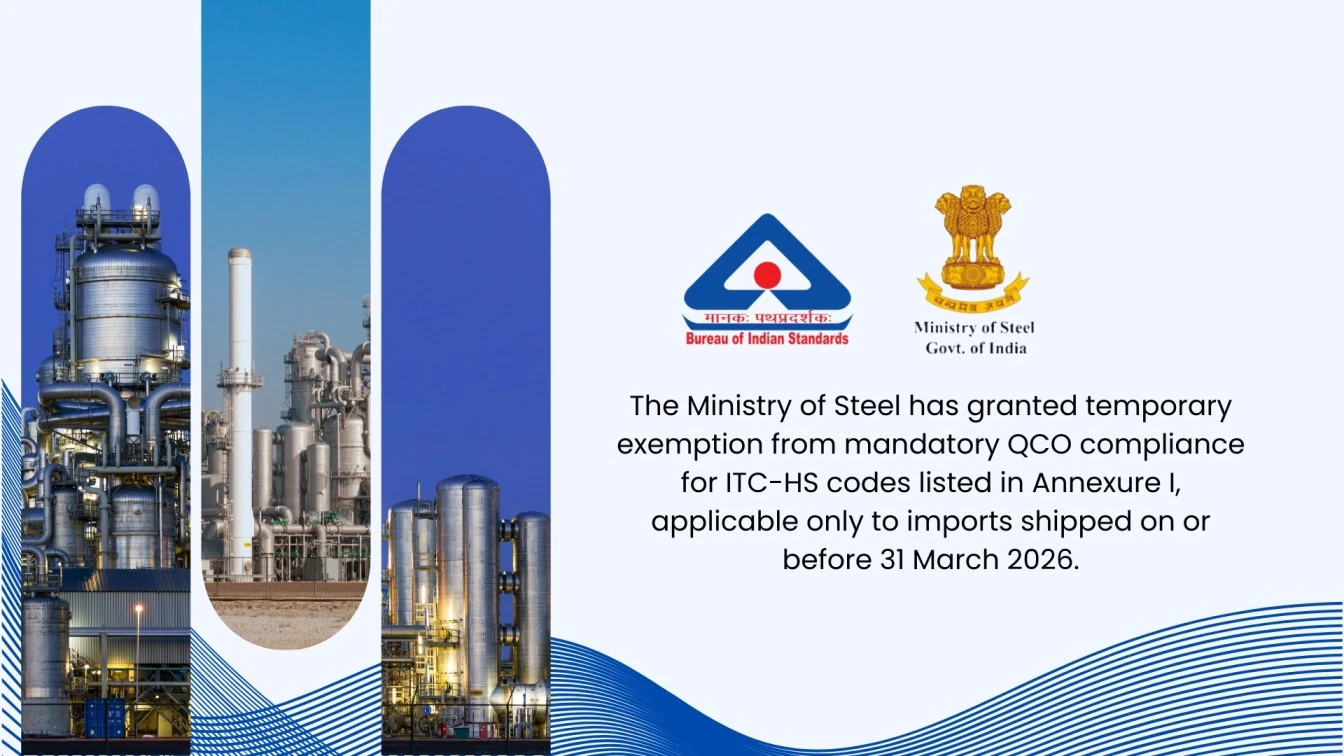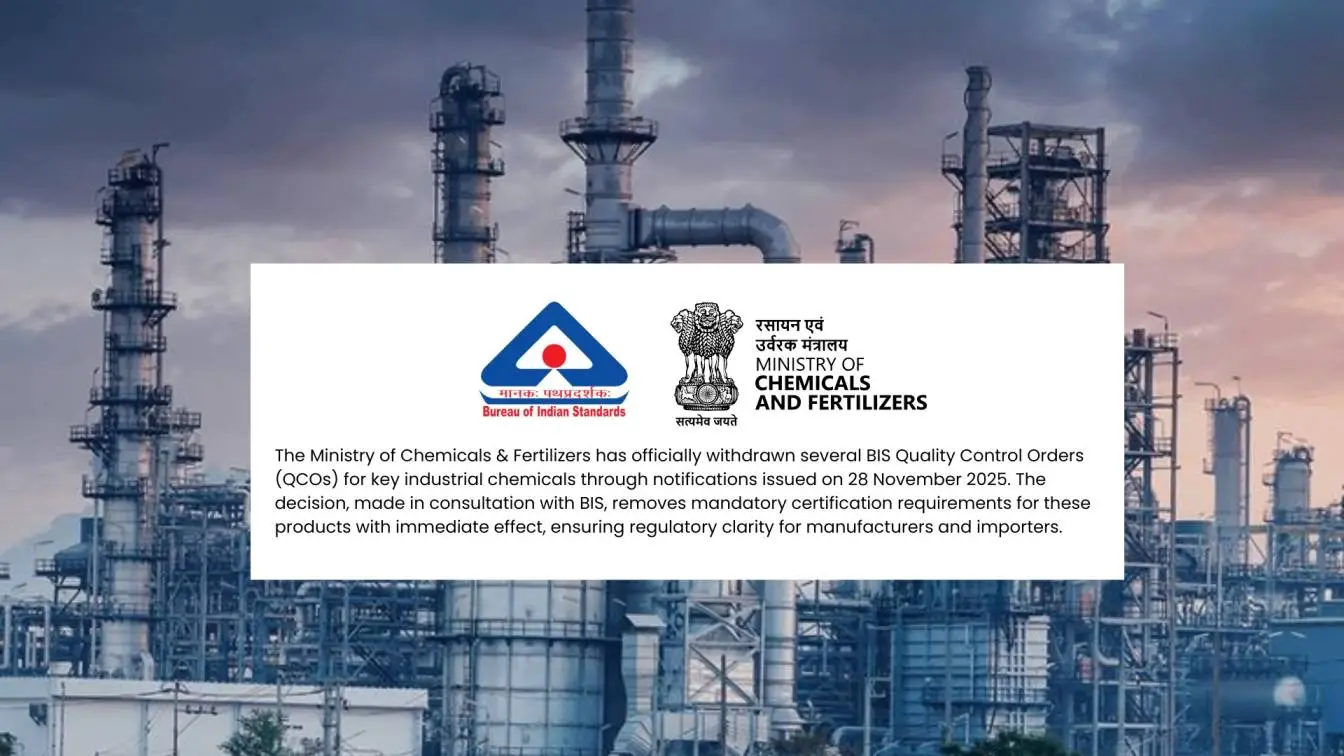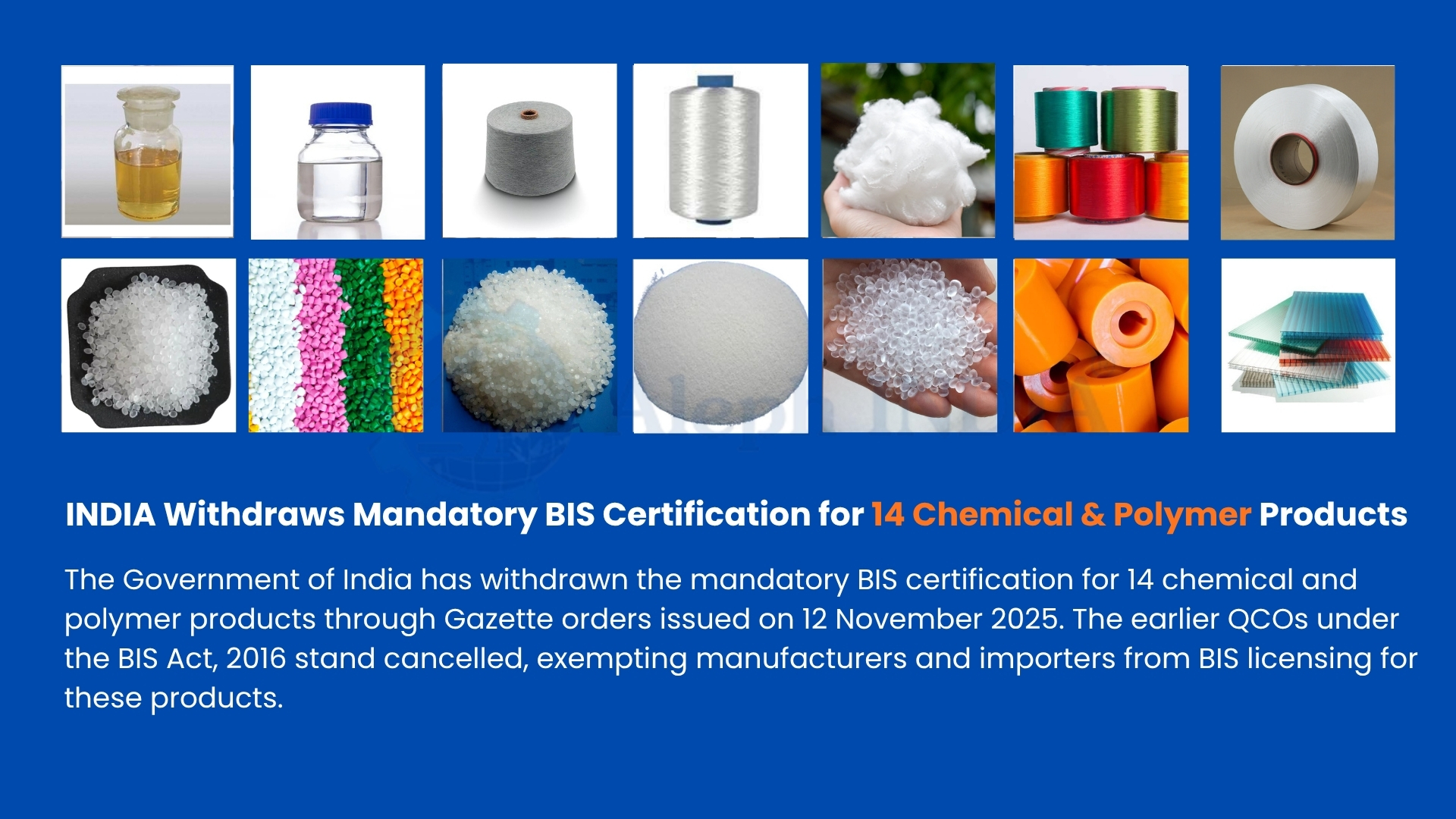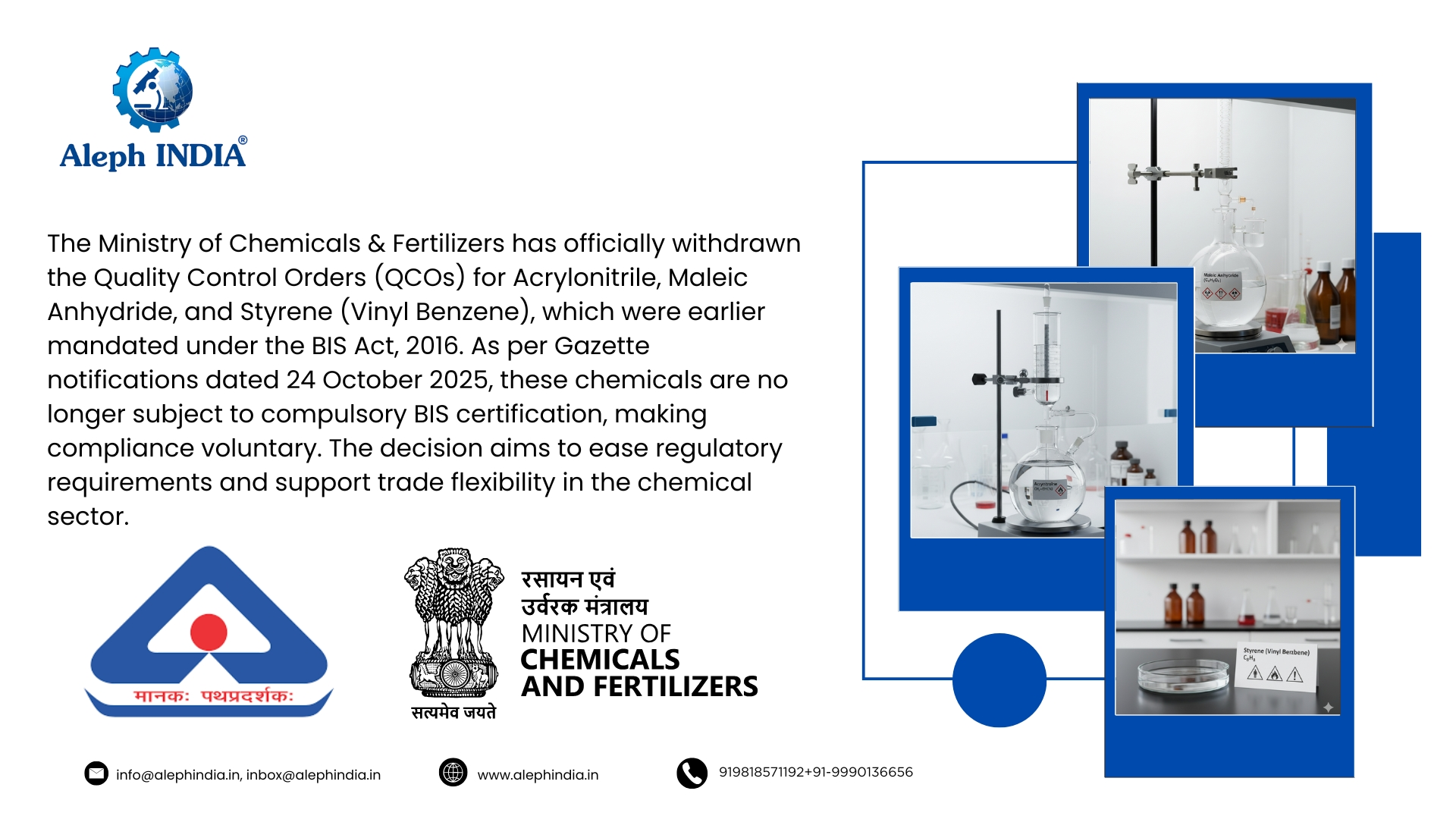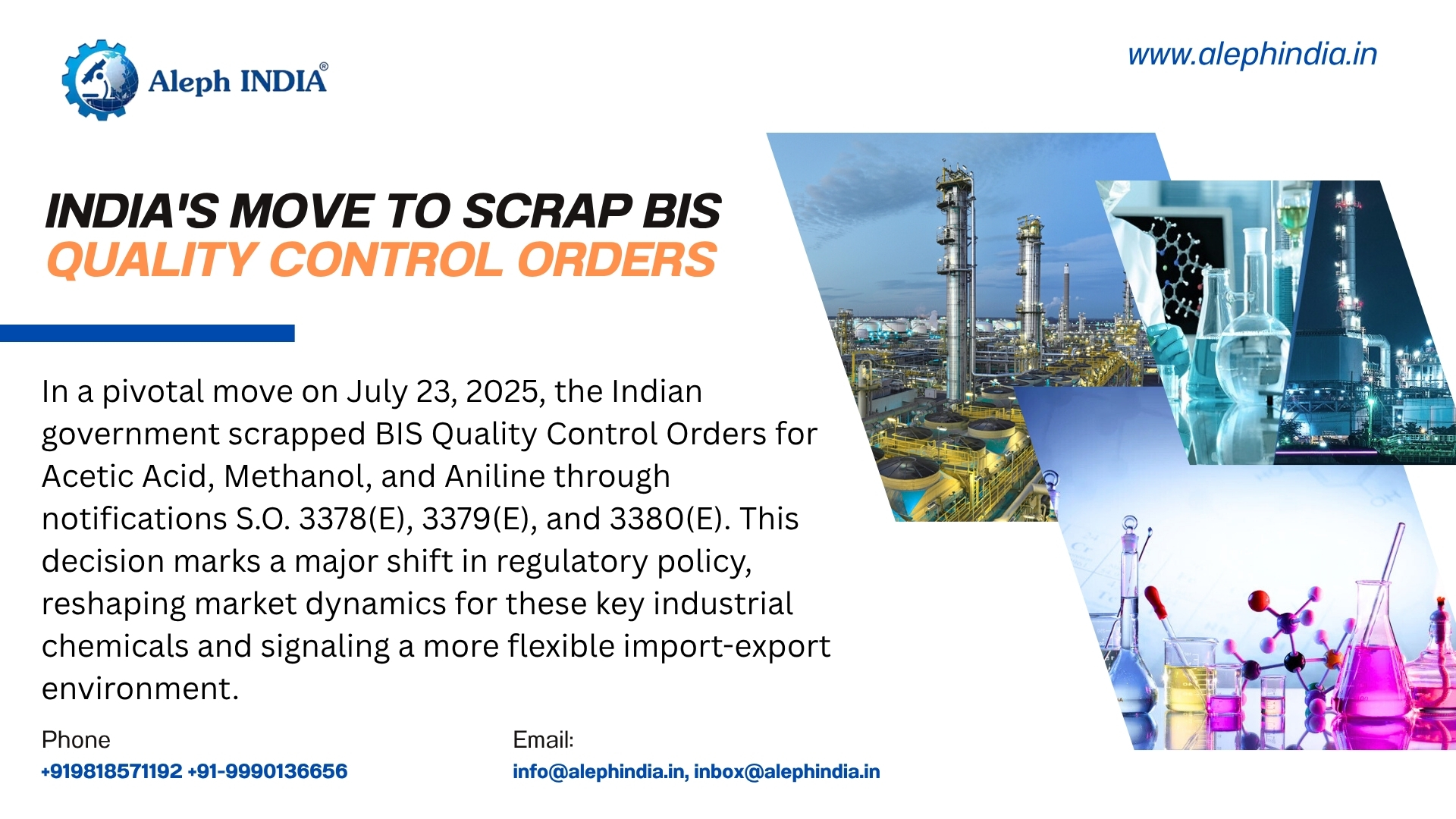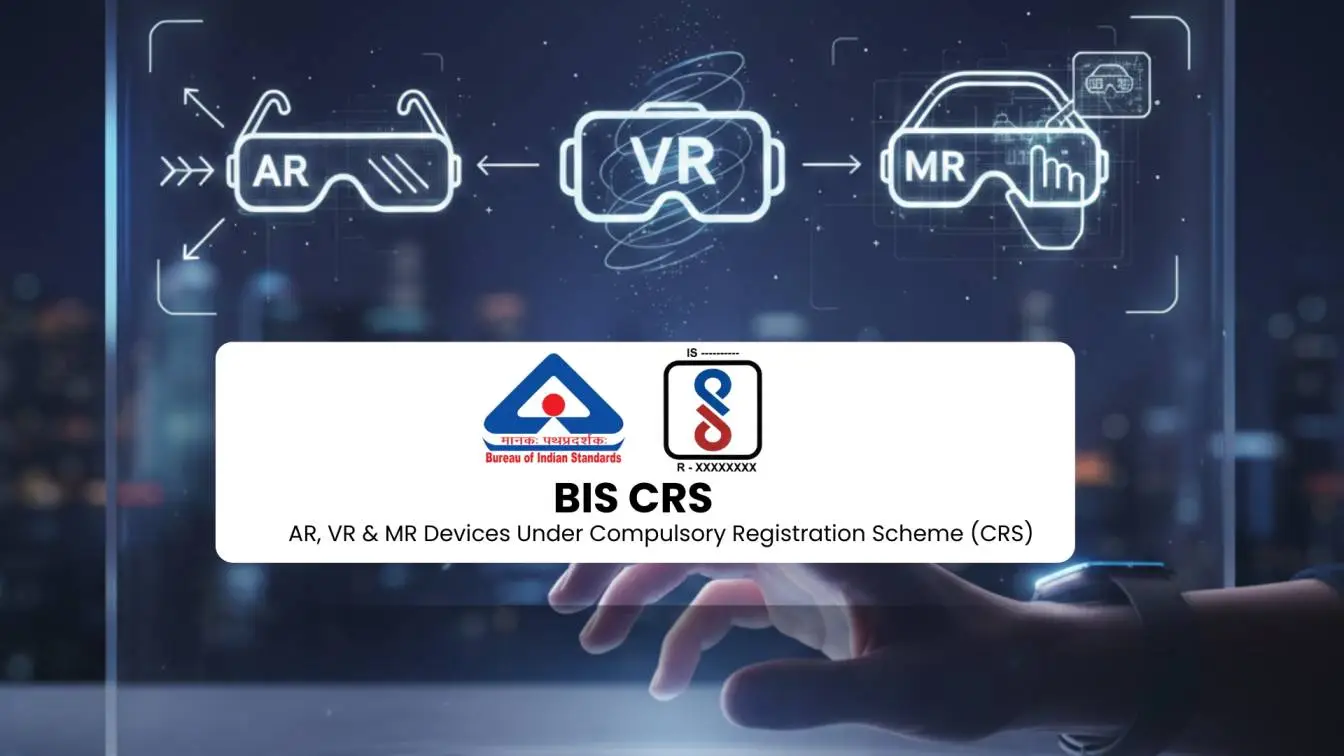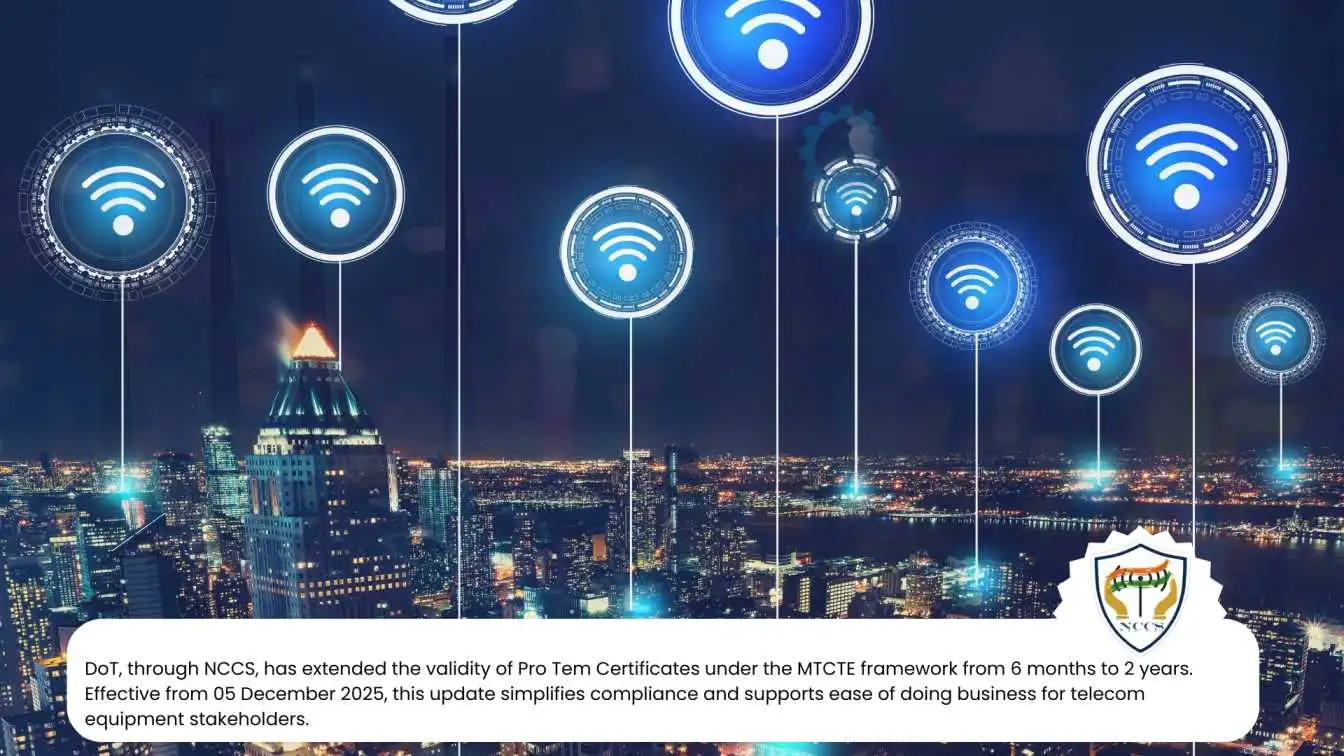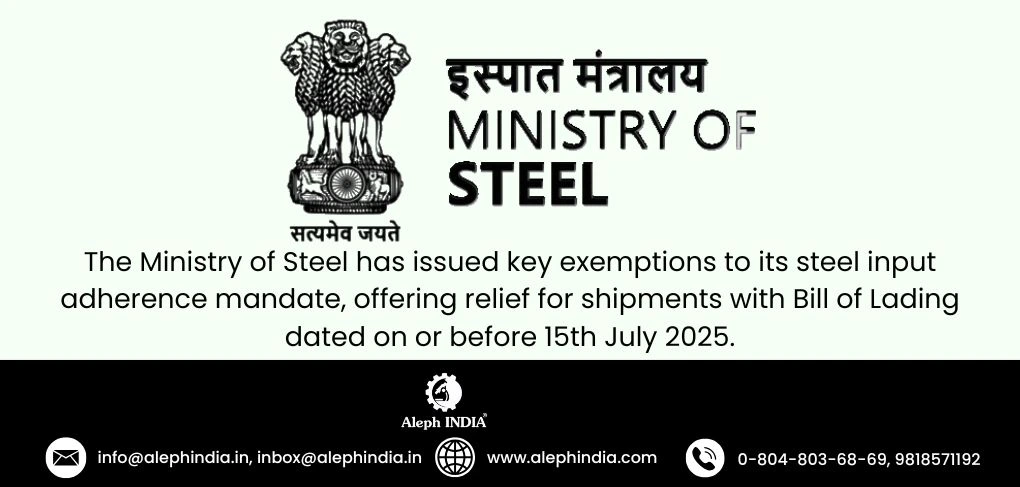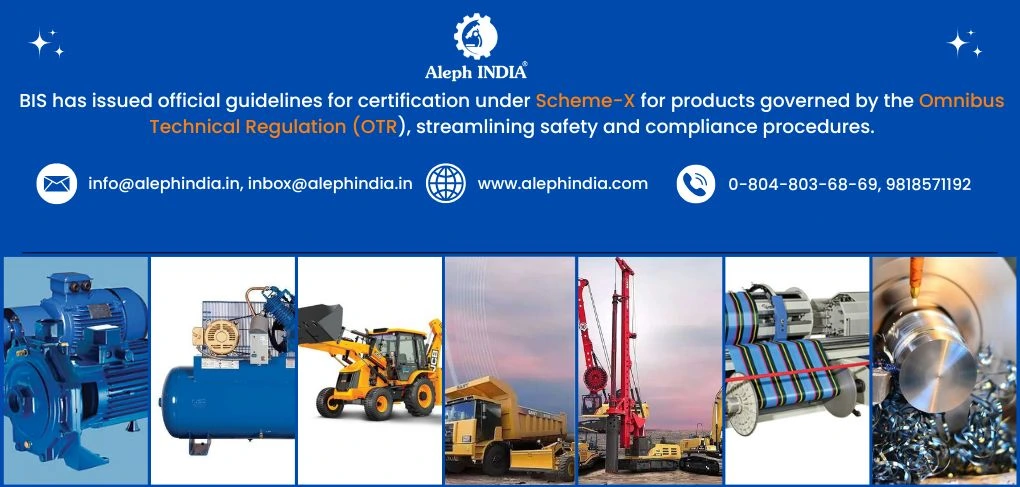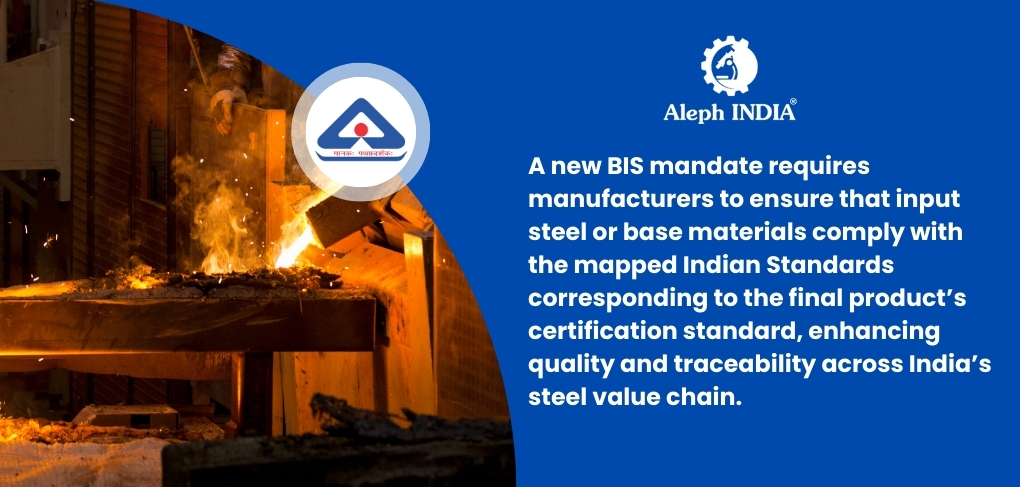- HOME
- ABOUT US
- SERVICES
-
LICENCE & CERTIFICATION
- BIS (ISI MARK) FOR FOREIGN MANUFACTURERS
- DOMESTIC PRODUCT CERTIFICATION (ISI MARK)
- BIS SCHEME X CERTIFICATION
- BIS CERTIFICATE OF CONFORMITY (CoC)
- BIS HALLMARKING
- REACH CERTIFICATION (GLOBAL)
- LABORATORY RECOGNITION SCHEME (LRS)
- WORLD MANUFACTURER IDENTIFIER (WMI) CODE
- ECO MARK
- TAC APPROVAL FOR AUTOMOBILE
- PESO CERTIFICATION
- SASO CERTIFICATION
- CDSCO CERTIFICATION
-
REGISTRATION
- BIS (CRS) REGISTRATION FOR ELECTRONIC PRODUCT
- WPC-ETA APPROVAL
- BEE CERTIFICATION
- E-WASTE MANAGEMENT (EPR)
- EPR REGISTRATION FOR PLASTIC WASTE MANAGEMENT
- EPR REGISTRATION FOR BATTERY WASTE MANAGEMENT
- EPR REGISTRATION FOR USED OIL
- LEGAL METROLOGY (LMPC)
- TEC/MTCTE APPROVAL
- CE CERTIFICATION
- UL CERTIFICATION
- ROHS LICENCE
- DRONE REGISTRATION
- MOEF LICENCE
-
AUXILIARY
- STANDARDIZATION (SCIENTIFIC) DIVISION
- TRAINING SERVICES (NATIONAL & INTERNATIONAL)
- IMPORT/EXPORT LICENCE
- FSSAI CERTIFICATION
- MSME/SSI/NSIC REGISTRATION
- ISO REGISTRATION
- BRAND REPRESENTATION
- LABORATORY EQUIPMENT AND SETUP
- TRADEMARK REGISTRATION
- MAKE IN INDIA SUPPORT
- AG-MARK LICENCE
- THIRD PARTY INSPECTION AND MONITORING SERVICES
-
- PORTFOLIO
- UPDATES
- CONTACT
- LOGIN
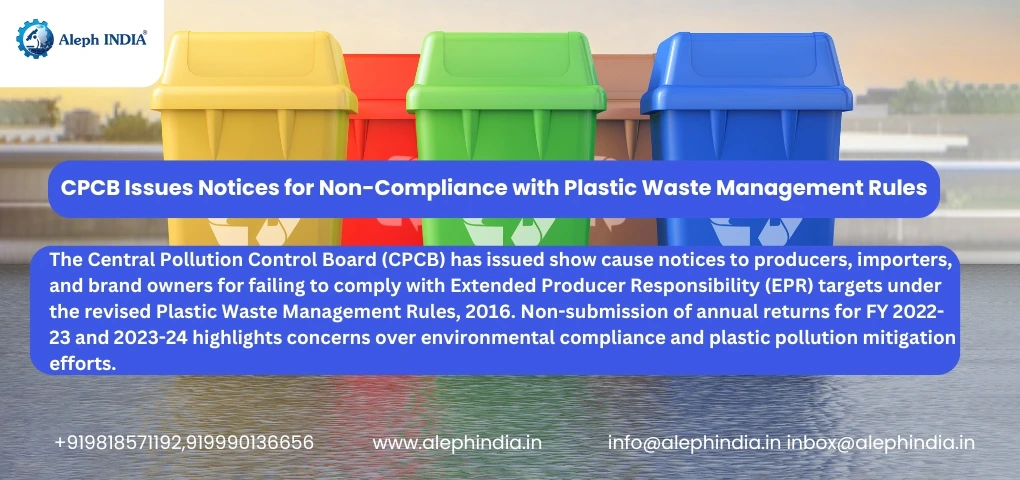
Important Update: Show Cause Notice Issued by CPCB for Non-Compliance with Plastic Waste Management Rules
In a significant move aimed at enforcing stricter adherence to environmental guidelines, the Central Pollution Control Board (CPCB), under the Ministry of Environment, Forest, and Climate Change (MoEF&CC), has issued a Show Cause Notice to various producers, importers, and brand owners (PIBOs) for non-compliance with the Plastic Waste Management (PWM) Rules, 2016, as amended. The show cause notice addresses the failure of these entities to submit their Annual Returns for the Extended Producer Responsibility (EPR) targets for the financial years 2022-23 and 2023-24. This failure to comply with the rules has raised serious concerns, as it affects the implementation of the country’s plastic waste management strategy and hinders efforts to reduce plastic pollution.
Key Highlights of the Notice:
1. EPR Guidelines & Obligations The Plastic Waste Management Rules, 2016, which came into effect in March 2016, impose stringent obligations on producers, importers, and brand owners of plastic packaging. These entities are required to set targets for the collection, recycling, and management of plastic waste, and report their progress annually through the submission of returns on the Centralized EPR Portal managed by CPCB.
2. Extended Producer Responsibility (EPR) As per the EPR Guidelines issued by the Ministry of Environment, Forest & Climate Change, producers, importers, and brand owners are obligated to ensure that plastic packaging waste is recycled and properly managed. The guidelines were updated in February 2022 to enhance the accountability of these entities.
3. Environmental Compensation (EC) The CPCB has the authority to levy Environmental Compensation (EC) in cases of non-fulfillment of EPR obligations. The polluter pays principle mandates that those responsible for generating plastic waste must bear the costs of managing it. The Environmental Compensation is calculated based on the shortfall in EPR targets and is categorized based on the type of plastic waste.
4. Penalties and Consequences For entities failing to file their Annual Returns for FY 2022-23 and/or FY 2023-24, the CPCB has warned of the following consequences:
- Auto-filing of Annual Returns: If the PIBOs fail to submit their returns, CPCB will proceed to auto-file them.
- Increased EPR Targets for FY 2024-25: A penalty in the form of a 25% increase in EPR targets for the next financial year will be imposed.
- Environmental Compensation: If a shortfall in EPR obligations is identified, an Environmental Compensation (EC) will be levied, with the amount depending on the category of plastic waste.
5. Timely Action Required The CPCB has set a deadline of 7 days from the issuance of the notice for the concerned entities to respond. Failure to provide a satisfactory response within this timeframe will result in the imposition of the prescribed penalties and further action under the Environment Protection Act, 1986.
6. Shortfall in Targets The notice also highlights specific shortfalls in meeting the EPR targets for various categories of plastic waste. The CPCB has provided detailed lists of the shortfall in each category, emphasizing the importance of compliance.
What Does This Mean for Producers, Importers, and Brand Owners?
- Immediate Attention Required: Any producer, importer, or brand owner involved in plastic packaging must immediately check if they have fulfilled their EPR obligations for the financial years 2022-23 and 2023-24. If not, they must take prompt action to rectify the issue and submit the necessary returns.
- Non-Compliance Can Be Costly: Entities that have not filed their returns or failed to meet the EPR targets will face significant financial penalties, including Environmental Compensation and an increase in EPR targets for the following year.
- Future Implications: The EPR system is a critical part of India’s strategy to tackle plastic pollution. Compliance is not just a legal requirement but also an environmental responsibility. Failure to meet obligations can impact an entity's reputation and market standing in the long term.
How to Respond to the Show Cause Notice?
If your organization has received this notice, it is essential to:
- Review Your EPR Returns: Verify whether you have filed your annual returns for FY 2022-23 and FY 2023-24.
- Submit Your Response: If you have any issues or disputes regarding the notice, submit a response within 7 days of receiving the notice.
- Rectify Shortfalls: If there are any shortfalls in fulfilling your EPR obligations, work towards addressing them and submit the required documentation.
- Communicate with CPCB: Send a soft copy of your response to [email protected] and a hard copy to the CPCB office.
Conclusion
The CPCB's Show Cause Notice serves as a stern reminder of the need for greater accountability in managing plastic waste. As India continues to strengthen its environmental protection laws, producers, importers, and brand owners must recognize the urgency of complying with the Plastic Waste Management Rules and the Extended Producer Responsibility Guidelines. Adhering to these regulations is crucial for minimizing plastic pollution and ensuring a sustainable future for the country.
For more information, please contact us.


